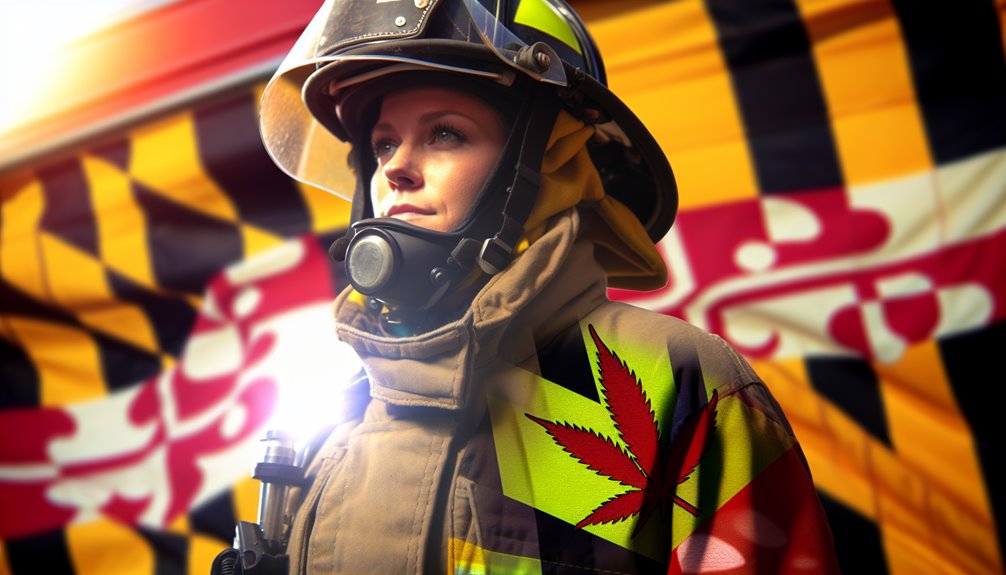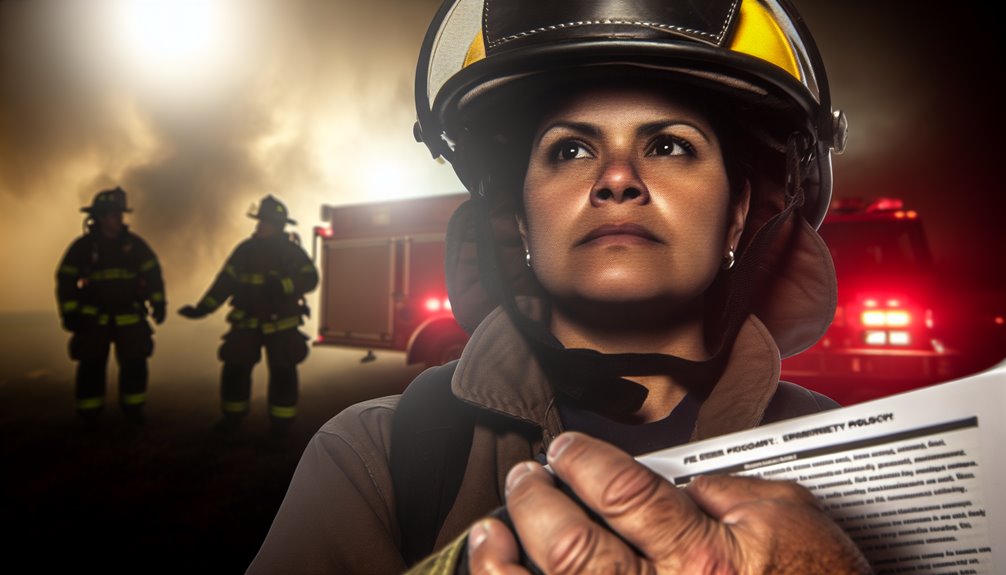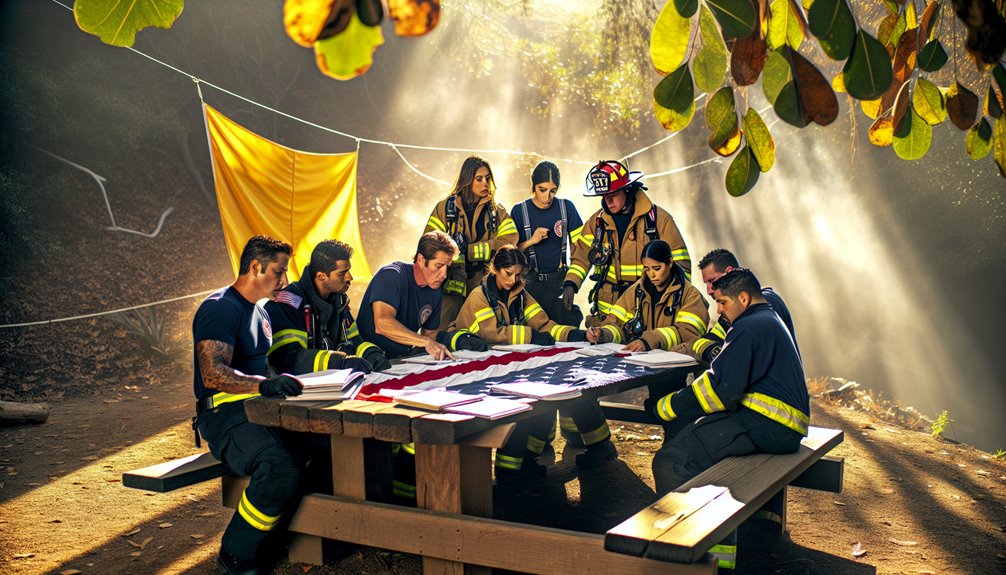You may not know Maryland now protects off‑duty, lawful medical cannabis use for registered firefighters and first responders—so long as there’s no on‑duty impairment. Agencies can still bar use, possession, and impairment during shifts and restrict MMJ in defined safety‑sensitive roles under NFPA, DOT, and federal rules. Verification must be confidential, testing impairment‑focused, and accommodations considered. How you structure policy, training, and documentation next will determine compliance—and your risk profile.
What Maryland’s New MMJ Workplace Protections Actually Do

Although Maryland expanded cannabis access, the state’s new workplace protections for medical marijuana (MMJ) are narrow and conditional. You gain limited shielding from adverse actions for lawful, off-duty MMJ use, provided you’re not impaired at work and your role isn’t safety-sensitive under established policy. Employers may still prohibit on-duty use, possession, or impairment, and they can act on objective impairment evidence. The law encourages medical privacy by limiting intrusive inquiries to what’s necessary for compliance. However, federal funding requirements, DOT rules, and safety mandates can override protections, fueling policy disputes. Document your treatment, follow dosing guidance, and engage supervisors early to align expectations.
Who Is Covered and How Eligibility Is Verified
Understanding who the law actually protects starts with two filters: your job classification and your status as a bona fide Maryland medical cannabis patient. You’re covered if you fall within eligible employee classifications—career, volunteer, or contractual—so long as your role isn’t excluded by statute or federal funding conditions. Eligibility hinges on active enrollment in Maryland’s Medical Cannabis Program, not a card from another state. The verification process is straightforward: HR confirms your patient status through documentation you provide, such as a valid registry ID and physician certification, without accessing medical records. Employers may verify currency and authenticity, but must safeguard confidentiality.
Safety-Sensitive Roles: Where Zero-Tolerance Still Applies

Even with Maryland’s MMJ protections, zero-tolerance policies still govern safety‑sensitive positions where impairment risks life, property, or mission readiness. If you operate apparatus, carry weapons, perform patient care, or work in incident command, you’re held to a higher standard to protect safety culture and public trust. Federal rules, NFPA guidance, and local directives allow agencies to bar on‑duty cannabis use and impairment. Off‑duty use can still be restricted when residual effects jeopardize acute performance. Medical exemptions don’t override bona fide occupational requirements. Document essential functions, apply consistent criteria, and communicate clear expectations so crews understand boundaries before deployment.
Drug Testing, Impairment Standards, and Reasonable Accommodation
While Maryland’s MMJ law shields cardholders from blanket discrimination, fire and EMS agencies can still require drug testing, enforce impairment standards, and evaluate reasonable accommodation under state and federal rules. You must follow drug policy that prioritizes safety in safety-sensitive duties. A positive THC test alone doesn’t prove on-duty impairment; document observable deficits—attention, psychomotor speed, decision-making. Use testing technology thoughtfully: urine detects past use, oral fluid narrows windows, blood correlates poorly with real-time performance. Consider reasonable accommodation off duty and off shift if it doesn’t create undue hardship or violate federal mandates. Always align procedures with NFPA, DOT, and ADA.
Action Steps for Departments, Unions, and Personnel to Stay Compliant

Before conflicts arise, set a clear, legally defensible framework: adopt a written cannabis policy that integrates Maryland’s MMJ protections, ADA interactive-process requirements, NFPA 1500/1582 fitness standards, DOT rules for CDL holders, and any applicable federal grant conditions. Provide policy training to supervisors, union reps, and clinicians on impairment recognition, duty restrictions, and accommodation pathways. Establish confidential intake, medical verification, and fit-for-duty processes. Define safety-sensitive roles, off-duty limits, and post-incident testing rules. Align discipline with progressive, documented steps. Standardize record retention for tests, accommodations, and training. Audit annually with counsel and labor. Communicate updates transparently and reinforce safety-first culture.
- Protect each other.
- Honor the mission.
- Lead with integrity.
Conclusion
As a part of the Fells Point Cannabis Docs team, I want to emphasize how important it is for you to understand these new workplace rights regarding MMJ use. We’re here to support you every step of the way! If you have any questions or just want to chat about how this impacts you or your loved ones, please don’t hesitate to visit us in person or give us a call at (410) 401-4200. We’d love to help you navigate this journey together in a friendly and welcoming environment.
